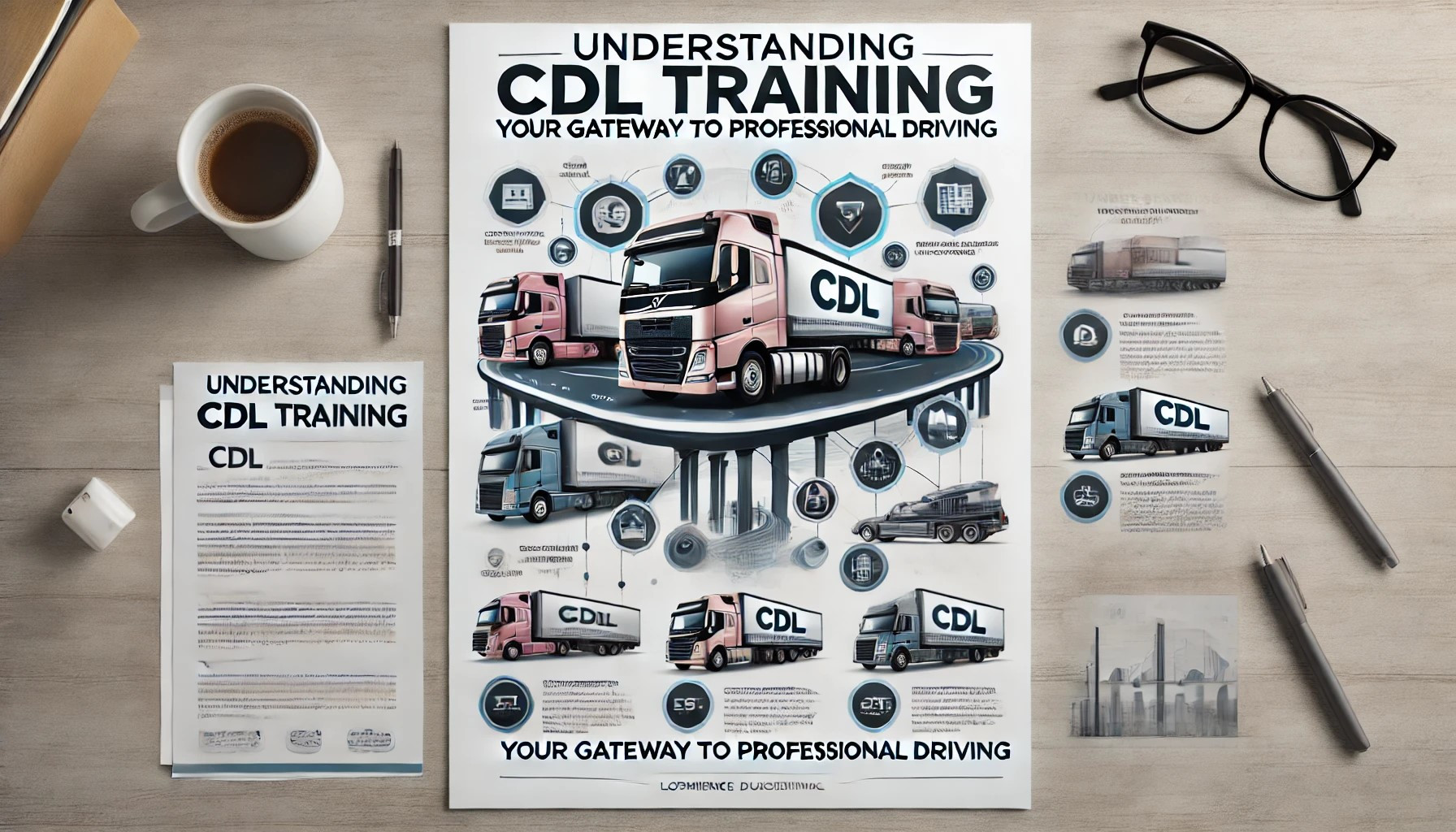Understanding CDL: The Gateway to a Professional Driving Career
A Commercial Driver’s License (CDL) opens the door to a world of professional driving opportunities. Whether you aspire to drive a truck, bus, or other commercial vehicles, obtaining a CDL is the first critical step. This blog will explore the importance of CDL training, its benefits, and why choosing a reputable drivers ed program like Get Drivers Ed is essential for success.
What is a CDL?
A Commercial Driver’s License (CDL) is a specialized license required to operate large or heavy vehicles for commercial purposes. This includes trucks, buses, and tractor-trailers. The CDL ensures that drivers have the necessary skills and knowledge to safely and effectively operate these vehicles.
Types of CDL
There are three classes of CDL, each allowing you to drive different types of vehicles:
Class A
This license allows you to operate any combination of vehicles with a total weight of 26,001 pounds or more, provided the towed vehicle is heavier than 10,000 pounds. It includes vehicles like tractor-trailers, tankers, and livestock carriers.
Class B
This license permits you to drive a single vehicle weighing 26,001 pounds or more, or any such vehicle towing another weighing up to 10,000 pounds. It includes vehicles like straight trucks and large buses.
Class C
This license covers vehicles not covered by Class A or B but are designed to transport 16 or more passengers or hazardous materials. It includes vehicles like small passenger vans and HAZMAT vehicles.
The Importance of CDL Training
CDL training is essential because it provides comprehensive knowledge and hands-on experience necessary for safe driving. The training covers various aspects such as:
Vehicle Operation
Understanding the mechanics of large vehicles, pre-trip inspections, and basic driving maneuvers. Learning how to handle a big rig in different driving conditions is crucial for safety and efficiency.
Safety Protocols
Learning defensive driving techniques, emergency procedures, and compliance with federal and state regulations. Safety training helps prevent accidents and ensures the well-being of both the driver and others on the road.
Specialized Skills
Gaining skills specific to the type of vehicle and cargo, such as maneuvering a tanker or handling hazardous materials. Specialized training is necessary for handling unique challenges and responsibilities associated with different types of commercial driving.
Why Choose Get Drivers Ed for CDL Training?
At Get Drivers Ed, we offer top-notch CDL training programs designed to prepare you for a successful career in commercial driving. Here’s why you should choose our program:
Experienced Instructors
Our instructors are seasoned professionals with extensive industry experience. They bring real-world insights and practical knowledge to the training sessions, ensuring you receive high-quality education.
Comprehensive Curriculum
Our curriculum covers all aspects of CDL training, from theory to practical driving skills. We provide a balanced mix of classroom instruction and hands-on practice, allowing students to gain confidence and proficiency in their driving abilities.
Flexible Learning
We offer both online and in-person classes to accommodate your schedule. Whether you prefer the flexibility of online learning or the interactive nature of in-person classes, we have options to suit your needs.
Job Placement Assistance
We provide job placement assistance to help you start your career immediately after completing the course. Our connections with industry employers ensure that you have access to various job opportunities.
Benefits of Obtaining a CDL
Earning a CDL comes with several benefits, including:
High Demand
There is a consistent demand for qualified commercial drivers, offering job stability. The transportation industry is essential for the economy, ensuring the continuous need for skilled drivers.
Competitive Salary
CDL holders often enjoy competitive salaries and benefits. The financial rewards of a commercial driving career can be substantial, making it an attractive option for many.
Career Advancement
A CDL opens up various career opportunities, including long-haul trucking, local delivery, and specialty transportation. With experience and additional endorsements, drivers can advance to higher-paying and more specialized roles.
Steps to Obtain a CDL
To obtain a CDL, you need to follow these steps:
1. Meet the Requirements
Ensure you meet the age, physical, and legal requirements for a CDL in your state. This often includes a minimum age requirement and passing a medical examination.
2. Complete a CDL Training Program
Enroll in a comprehensive CDL training program like Get Drivers Ed. Our program provides the knowledge and skills needed to pass the CDL exams and succeed in your driving career.
3. Pass the CDL Knowledge Test
This written test covers the rules and regulations of commercial driving. It is essential to study and understand the material thoroughly to pass this exam.
4. Pass the CDL Skills Test
This practical test includes a pre-trip inspection, basic vehicle control, and on-road driving. Hands-on training with experienced instructors is crucial for mastering these skills.
Conclusion
Choosing a career in commercial driving is a significant decision that requires proper training and dedication. By enrolling in a reputable drivers ed program like Get Drivers Ed, you can ensure you receive the best education and training to excel in this field. Our comprehensive CDL training program will equip you with the knowledge and skills needed to pass your CDL tests and embark on a rewarding career.
Take the first step towards your professional driving career today by enrolling in our CDL training program. Visit Get Drivers Ed to learn more and start your journey. Drive with confidence, learn with Get Drivers Ed!

